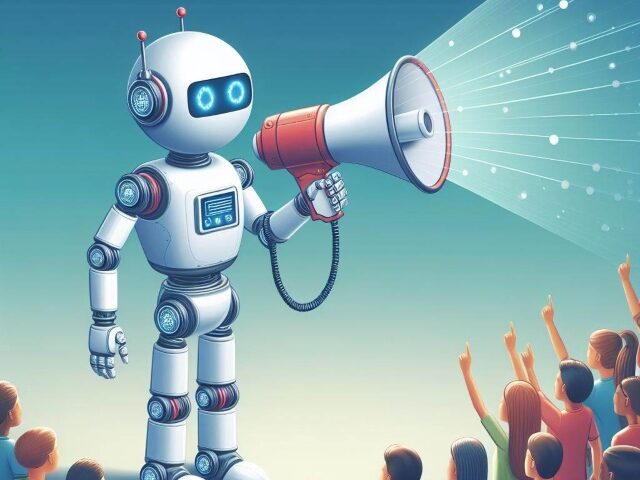Study: Major AI Chatbots Embrace Radical Leftist Political Ideologies, Demonstrate Anti-Conservative Bias
 Bing AI Creator
Bing AI Creator
An academic study has found that popular AI language models, including ChatGPT and Google Gemini, consistently display left-leaning political preferences when subjected to various political orientation tests.
The Daily Mail reports that David Rozado, an associate professor at Otago Polytechnic University in New Zealand, has conducted the first comprehensive study examining the political leanings of artificial intelligence language models. The study, published in PLoS ONE, analyzed 24 Large Language Models (LLMs) using 11 different political orientation tests, including the Political Compass Test and Eysenck’s Political Test.
The research encompassed a wide range of prominent AI models, such as OpenAI’s GPT-3.5 and GPT-4, Google’s Gemini, Anthropic’s Claude, X/Twitter’s Grok, Llama 2, Mistral, and Alibaba’s Qwen. These models were presented with politically charged questions to assess their values, party affiliation, and personality traits.
Results from the study revealed that all tested LLMs consistently produced answers that aligned with progressive, democratic, and environmentally conscious ideologies. The AI models frequently expressed values associated with equality, global perspectives, and “progress.”

To further investigate the phenomenon, Rozado conducted an additional experiment by fine-tuning GPT-3.5. He created two versions: LeftWingGPT, trained on content from left-leaning publications like the Atlantic and the New Yorker, and RightWingGPT, which was fine-tuned using material from right-leaning sources such as National Review and the American Conservative. The experiment demonstrated that RightWingGPT gravitated towards right-leaning regions in the political tests, suggesting that the political leanings of AI models can be influenced by the data used in their training.
Rozado hypothesized that the consistent left-leaning diagnoses of LLMs might be attributed to the use of ChatGPT in fine-tuning other popular language models through synthetic data generation. However, he emphasized that the study cannot definitively determine whether the perceived political preferences stem from the pretraining or fine-tuning phases of the AI models’ development.
The researcher also noted that these findings do not necessarily indicate a deliberate attempt by organizations to instill specific political preferences in their AI models. Instead, it highlights the complex nature of AI training and the potential influence of training data on the political leanings of language models.
This study comes at a time when concerns about AI bias in widely-used technologies are growing. Recent incidents involving Google’s Chrome browser have sparked debates about potential political interference in search results and auto-complete suggestions. These occurrences have led to increased scrutiny of AI integration in everyday technologies and their potential impact on public opinion and information dissemination.
Read more at the Daily Mail here.
Lucas Nolan is a reporter for Breitbart News covering issues of free speech and online censorship.
Source link

